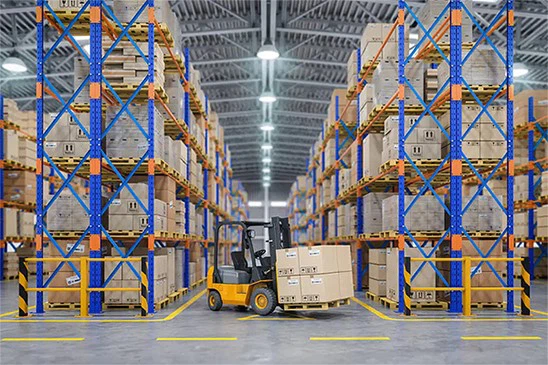Electric forklift batteries mainly use lithium batteries or lead-acid batteries. Battery selection is significant to the production and operation of forklift enterprises, which usually determines the following factors: safety, capacity, charging speed, cycle life, brand, price, and so on.
When consumers experience the environmental advantages of electric forklifts, they also find some limitations of lead-acid batteries, such as lead-acid batteries produce flammable hydrogen gas with irritating odor when charging; lead-acid batteries have a short range and the range energy decays rapidly; the charging time of lead-acid batteries is greater than the range time; when forklifts use lead-acid batteries, customers need to configure multiple sets of lead-acid batteries, and lead-acid forklifts need frequent battery replacement when running; lead The daily maintenance of lead-acid battery is also tedious and the overall labor cost is high. The limitation of using lead-acid batteries in forklift batteries has become a problem for customers in daily use. The main features of electric forklifts are quiet and environmentally friendly, and indoor work is not polluting. The forklift lithium battery responds to the world's call for environmental protection and attaches importance to safety. Lithium battery is environmentally friendly, does not contain cadmium, lead, mercury, and other elements that pollute the environment, and is safe and environment-friendly to employees. Lithium battery technology advances, applied to the electric forklift truck can quickly be charged at any time, and long life and other advantages are becoming more prominent.
So why are most of the batteries used in electric forklift trucks today lithium batteries, and what are the outstanding advantages of using lithium batteries in electric forklift trucks?
Lithium-ion battery pack has a smart battery management system(BMS), the function is to prevent the battery from low charge, short circuit, overcharge and over-discharge, high temperature, and other faults automatically cut off the circuit, and feedback the data to APP, so that consumers know the battery status in real-time.
The lithium battery of the forklift truck charge quickly and is free of maintenance. For warehouses, logistics, airports, and freight, lithium batteries recharge quickly and fully charge in 1-2 hours., which can use the gap time to finish charging and become the ideal choice for multi-shift operations. In addition, after the lithium battery is packaged, it does not need to be filled with water and discharged regularly, which reduces the workload.

For the handling industry, handling speed and productivity are crucial. Therefore, forklifts need to work with a full power load and cannot delay operation by frequent charging. Lithium battery forklift trucks do not need spare batteries and special charging rooms.
Compared with other energy sources, Li-ion batteries store energy and have about three times the capacity of lead-acid batteries, which can provide stable voltage for forklifts continuously and do not affect the efficiency of forklifts when discharging.
Therefore, the advantages of choosing lithium batteries for forklifts can be summarized as follows:
1. No heavy metal pollution, no pollution and no emission during use, meeting the demand for cleaner power energy systems for vehicles.
2. Compliance with ROHS environmental regulations, no acid mist produced during charging.
3. Waste batteries can be recycled and reused.
4. Li-ion batteries are fully enclosed packages and do not produce gas during charging, eliminating the need for manual maintenance and servicing.
5. Avoid damage to the battery caused by improper maintenance.
6. Lithium battery has high charging efficiency and can be 100% DOD deep discharge.
7. Under normal charging and discharging conditions, the capacity retention rate is greater than 80% after 4000 cycles.
8. Long cycle life, the battery life can be up to 8~10 years.
9. Electric lithium electric forklift does not need to replace the battery during its life cycle.
10. High temperature and low-temperature resistance, use usually between minus 20 degrees and 55 degrees.
11. The battery has a fast-charging function, and no memory effect, reducing the backup battery.
12. Meet the charging multiplier of 0.5C or more. It means that fully charged batteries of the same capacity, lithium battery charging requires more than 20% less power than lead-acid batteries, and for customers with high battery usage, is a very significant saving in electricity costs.
Combining the above advantages, lithium batteries are particularly suitable for the following situations: With the demand for battery usage, each electric forklift is equipped with 2-3 sets of lead-acid batteries and needs frequent battery replacement, such as in the logistics industry. Strict requirements for the charging environment and no flammable gas and irritating smell are allowed, such as food and beverage, pharmaceutical, and chemical industry. For customers with fine management of overall operation costs, consider the case of saving electricity costs.
